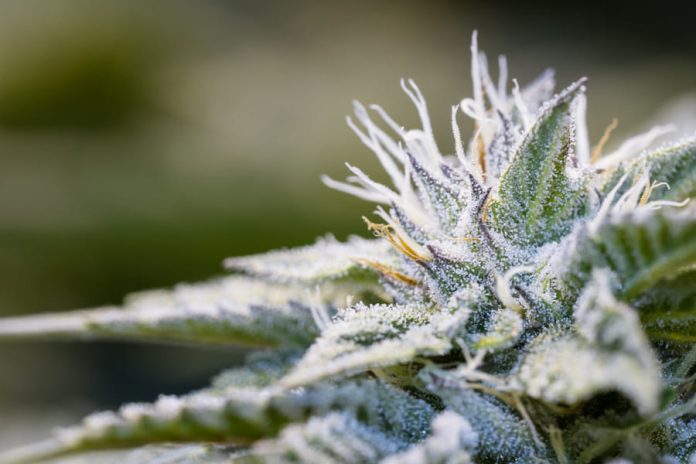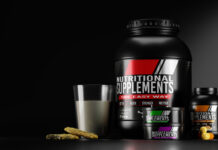
Delta 8 and THC are two chemical compounds that belong to the same family of cannabinoids found in weed plants. While they share some similarities, they also have distinct characteristics that set them apart.
We will delve deep into the world of Delta 8 and THC, exploring their chemical structure, psychoactive effects, legal status, medical benefits, potential risks, and how to consume them.
By the end of this article, you will have a better understanding of the differences between both compounds and be able to make an informed choice when it comes to using them.
Delta 8 and THC: Similarities
Delta 8 and THC, or delta-9-tetrahydrocannabinol, are cannabinoids that interact with the body’s endocannabinoid system. This system plays a crucial role in regulating various physiological processes, including mood, appetite, pain sensation, and immune function.
Both Delta 8 and THC bind to the CB1 receptors in the brain and central nervous system, which leads to their psychoactive effects.
Delta 8 and THC Chemical Structure
The chemical structure of Delta 8 and THC is similar, with only a slight difference in their molecular arrangement. Delta 8, sold by Delta 8 brands, has two bonds on the 8th carbon chain, while THC has a dual bond on the 9th carbon chain.
This little difference in structure accounts for the varying effects that these compounds have on the body. Delta 8 is known to have a less potent psychoactive effect compared to THC, making it a famous choice for those seeking a more precise experience.
Delta 8 and THC Psychoactive Effects
One of the key distinctions between Delta 8 and THC lies in their psychoactive effects. THC is well-known for its potent psychoactive properties, often causing an exciting high and changing perception and cognition.
Also, Delta 8 offers a more gentle and less intense psychoactive experience. Users often describe the effects of Delta 8 as a relaxed and clear-headed state, without the anxiety or paranoia that can sometimes accompany THC use.
This makes Delta 8 a suitable option for individuals who want to experience the benefits of cannabis products sold by cannabis seed banks without feeling overwhelmed.
Delta 8 and THC Legal status
Delta 8’s legal status and THC vary based on the authority. THC used in THC carts is categorized as a Schedule I substance in several countries, meaning it is illegal to possess, produce, or distribute.
However, there are some jurisdictions where the use of THC for recreational or medical purposes is legal. On the other hand, Delta 8 occupies a legal gray area.
While it is extracted from hemp, which was made legal under the 2018 Farm Bill in the U.S., some states have banned the sale and use of Delta 8 due to its psychoactive properties.
It is essential to research and understand the laws in your specific location before using either Delta 8 or THC.
Medical Benefits of Delta 8 and THC
Both Delta 8 and THC have shown promise in providing various medical benefits. THC is commonly used to alleviate symptoms associated with chronic pain, nausea, insomnia, and muscle spasms. [1] It has also been found to stimulate appetite and reduce inflammation.
Delta 8 sold by Delta-8 brands, although less studied, has similar potential therapeutic effects. It may help with pain relief, anxiety reduction, and improving appetite.
However, more research is needed to fully understand the medical benefits of Delta 8 and THC and their potential applications in treating various conditions.
Side Effects and Potential Risks of Delta 8 and THC
While Delta 8 and THC offer potential benefits, it is essential to know their side effects and potential risks. THC, being highly psychoactive, can cause adverse effects such as anxiety, paranoia, impaired memory, and coordination difficulties.
It may also have long-term effects on brain development, especially in adolescents. Delta 8, while less intense, can also induce similar side effects, although they are typically milder.
It is worth noting that the effects of Delta 8 and THC can vary depending on dosage, individual tolerance, and method of consumption. It is always advisable to start with a low dose and gradually increase if needed.
How To Consume Delta 8 and THC
Delta 8 and THC can be consumed in various ways, depending on personal preference and desired effects. Inhalation is a popular method, with options such as smoking dried flowers or vaporizing concentrates using vape pens.
Edibles, such as gummies or baked goods infused with Delta 8 or THC, offer a discreet and long-lasting effect. Tinctures and oils provide a sublingual method of consumption, where the compounds are absorbed through the mucous membranes under the tongue.
Topical creams and lotions containing Delta 8 or THC can be applied directly to the skin for localized relief. Each consumption method has its own duration and onset time, so it is important to pick the one that suits your needs.
Delta 8 vs. THC in Drug Tests
If you are subject to drug testing, it is crucial to consider the implications of using Delta 8 or THC. Most drug tests are designed to detect the presence of THC in the system, as it is the primary psychoactive compound in cannabis.
Delta 8, although less potent, can still trigger a positive result on a drug test. It is advisable to refrain from using any cannabis products if you are required to undergo drug testing, as the consequences can be significant, including loss of employment or legal trouble.
Always consult with your employer or the relevant authorities to understand the testing policies and make an informed decision.
What Is the Difference Between Delta 8 and THC: Final Thoughts
Delta 8 and THC are two distinct cannabinoids with their own set of characteristics. While THC offers a potent psychoactive experience, Delta 8 provides a milder alternative with similar potential benefits.
When choosing between Delta 8 and THC, it is essential to consider factors such as legal status, desired effects, potential risks, and method of consumption. It is also crucial to consult with a medical professional or cannabis expert to ensure responsible and informed use.
Ultimately, the choice between Delta 8 and THC depends on personal preference and individual needs.
Reference
- Baron E. P. (2018). Medicinal Properties of Cannabinoids, Terpenes, and Flavonoids in Cannabis, and Benefits in Migraine, Headache, and Pain: An Update on Current Evidence and Cannabis Science. Headache, 58(7), 1139–1186. https://doi.org/10.1111/head.13345
Disclaimer: This article contains sponsored marketing content. It is intended for promotional purposes and should not be considered as an endorsement or recommendation by our website. Readers are encouraged to conduct their own research and exercise their own judgment before making any decisions based on the information provided in this article.


































